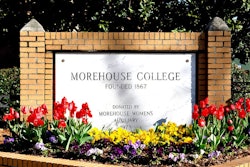As Howard University and Internet giant Google launch a summer residency program to boost hiring of underrepresented minorities in the technology sector, a recent study suggests that the top reasons for the field’s racial homogeneity isn’t the absence of a diverse pipeline but young graduates’ lack of industry contacts and an information gap about job prospects.
Meanwhile, at least one longtime diversity advocate says that Google’s joint initiative will do little or nothing to address the industrywide dearth of Blacks and Latinos in mid-career and senior levels of the workforce.
“This initiative can only move the needle in the recruitment pipeline of entry-level coders,” says John Rice, CEO of Management Leadership for Tomorrow (MLT), a Bethesda, Md.-based nonprofit that partners with Fortune 500 companies and elite business schools so that minority students can make key connections. “That’s one small part. To solve the diversity challenge, companies must build a critical mass of minority talent at every level and every group.
“The technology sector needs to invest in higher retention and advancement rates among diverse staff at all levels. I hope Google puts this initiative in context and makes it clear that this is just one aspect of their diversity strategy. Much more is needed to close the gap.”
By “gap,” Rice is referring to the fact that Google’s employee diversity numbers — 2 percent Black and 3 percent Latino — are no better than they were in 2014, when Google and many other large technology businesses trudged down a proverbial walk of shame when disclosing their workforce demographics.
More recently, Rice’s group conducted a survey of 956 early- and mid-career, Black, Latino and Native American professionals and found that “a lack of career information (was) the driving reason preventing STEM and non-STEM majors from pursuing careers in tech.”
“We believe that increasing exposure to and education about tech careers can significantly increase the percentage of minority STEM majors who successfully pursue careers” in the field, an MLT report states. “We found a large number of individuals who are excited about tech but are working in other industries.”














